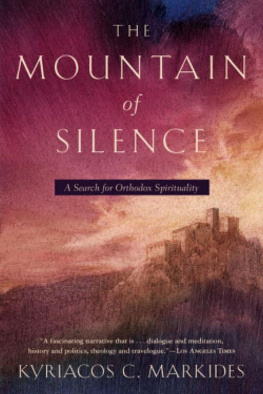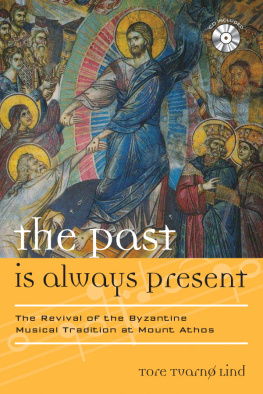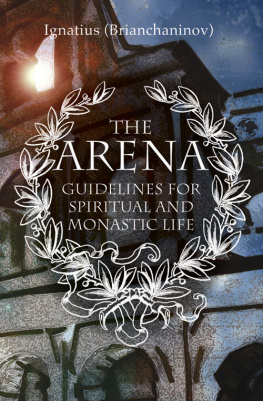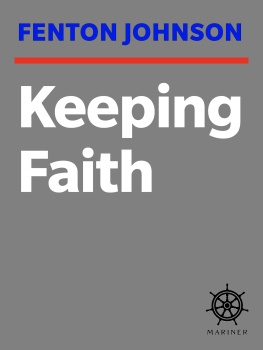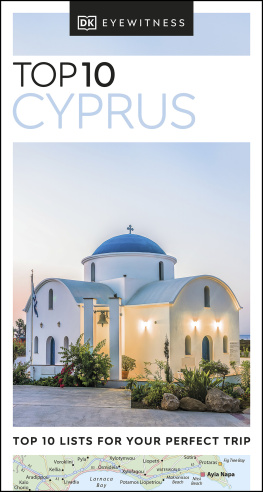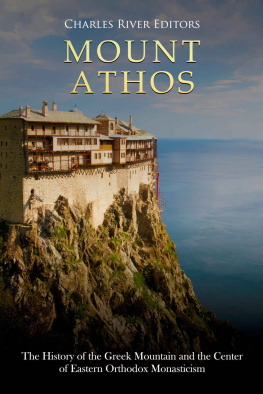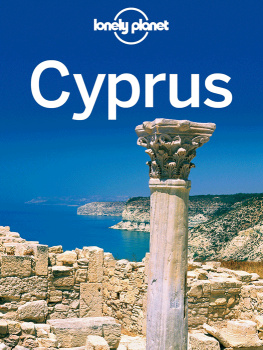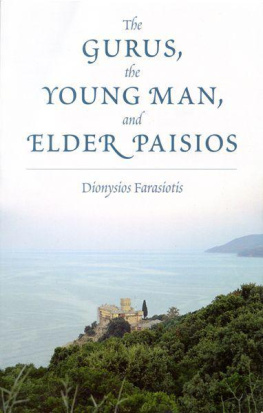A Search
for
Orthodox
Spirituality
DOUBLEDAY
NEW YORK LONDON TORONTO SYDNEY AUCKLAND
The
M ountain
of Silence

KYRIACOS C. MARKIDES
CONTENTS

For Nikos and Dora
Authors note
I am immensely indebted to Father Maximos, the central figure of this book, for his love, friendship, and spiritual guidance. Without his readiness to share with me his knowledge and experience of the Eastern Orthodox spiritual tradition, this book would not have been written. It goes without saying that whatever shortcomings one may find in the presentation of this wisdom tradition are exclusively mine. I would also like to thank the monks of the Panagia monastery in Cyprus and the elders, monks, and hermits that I met of Mount Athos, Greece, for their generous hospitality.
I extend my appreciation to my colleagues in the sociology department of the University of Maine for a sabbatical leave in the spring of 1997 and for their continuous support of my research endeavors. My thanks also go to the following individuals for their direct or indirect role in the making of this book: all those that I wrote about in these pages; Marlene Gabriel, my literary agent, and Eric Major, my editor and publisher, for their exemplary professional expertise and sustained faith in the value of this work; Bishop Kallistos Ware, Oxford professor of religion, for reading most of the first draft and offering me invaluable feedback; anthropologist Eleni Stamiris for her insightful suggestions; Akis Lordos for introducing me to Mount Athos, thus exposing me to the extraordinary richness of Eastern Orthodox mystical spirituality; and Lambros Karris, friend and colleague, for exposing me to the uplifting joys of Byzantine chanting.
Special thanks to my friend Mike Lewis, professor of art at the University of Maine, for sharpening my sensitivity to the beauty of nature and helping me appreciate the important role that art can play in the spiritual awakening of humanity. I cherish his sustained interest in my work, his critical reading of the first draft of each chapter, and for designing the art piece on the cover of this book.
Many friends and relatives in Cyprus played an important role in keeping my wife Emily and myself emotionally connected to the country and its people. I would like to salute all these friends, particularly my boyhood friend Petros Yiassemides and his wife Ritsa for making us feel so much part of their lives.
My deepest gratitude goes to my sister Maroulla and my brother-in-law Vasos Christou and their family for their heartfelt generosity and genuine affection. Their presence in Cyprus, more than anything else, kept the embers of our love for our birthplace alive.
When I published my first book in 1977, our son Constantine was only a toddler and Vasia was yet to be born. By the time this book was in its first draft they were both providing me with their critical and valuable comments and assessments. Constantine read every page, offering suggestions for improvement through the critical eye of an aspiring author.
To my wife Emily I could only reiterate what I have said in my previous works. Her extraordinary energy, zest for life, and love for adventure provided me with the context that allowed me to enter into realms of experience that without her nurturing support I may not have ventured into. She has not only been my lifelong companion and the bedrock of my emotional stability and well-being, but my best friend, confidante, intellectual partner, and editor of everything I write. This book is a far superior book because of her painstaking and meticulous editorial assistance, in spite of her own pressing work in setting up in Cyprus, together with other peace practitioners, an International Eco-peace Village for women and youth.
A final note: I have employed the Greek conjugation when directly addressing Greek males in the dialogues. For example, Father Maximos is addressed as Father Maxime, Kyriacos is addressed as Kyriaco, and so on. Female Greek names do not pose such idiomatic problems. Most of the names in this work are pseudonyms in order to protect the subjects privacy. For this reason I have occasionally interjected minor alterations in describing the actual location where some episodes took place. However, everything in this book is based on true dialogues, actual encounters, and real experiences.
Prolegomena
W hen I arrived in America in the early sixties for my higher education, I brought with me a naive faith in the Christian religion, the Church, and the God of my forefathers and grandmothers. It was a taken-for-granted faith based on an upbringing within the insulated and homogeneous confines of Eastern Orthodoxy, the dominant religion of Cyprus. The cosmopolitanism and multiculturalism of America, where religion is a preference rather than a fate, shattered that simple security of belief. After ten years of training as a sociologist I was turned from a believer into an agnostic. I had concluded, like most of my peers, that religion was a creation of society, after all. I came to consider it axiomatic that society gave birth to the gods, not the other way around; society created the religion it needed for its own survival. At worst, religion preserved class inequities by shifting peoples focus from the real world of injustice and oppression to the fantasized beyond of pie in the sky salvation. At best, it helped people cope with their personal tragedies, a useful collective illusion for the maintenance of social stability and order. Therefore, when believers of all faiths kneel down to pay homage to their deities, in reality they unwittingly worship their society in disguise. It was a powerful, irresistible insight coming from the pens of the mightiest intellects of modern social philosophy and sociology.
By the time I completed my studies I had internalized this dominant yet unspoken worldview within the modern academic culture: religion, particularly traditional religion, which meant belief in a personal God, was a thing of the past, a residue of medievalism destined to an eventual oblivion.
I was not a cheerful agnostic. In fact, initially pondering the nihilistic implications of the death of God theology was extremely painful to meIf there is no God then anything goes. But the intellectual universe I found myself in offered hardly any other alternative. A serious scholar could not be a believer in unprovable notions about the beyond, spirit beings, angels and devils, and the like. Those were the beliefs of preliterate peoples and of the loving and humble aunts that I had left behind in Cyprus. For a worldly man of letters, a social scientist, the only real world was the world of hard facts, of the concrete physical universe, and of ordinary consciousness. Any notions about the beyond were fantasies, delusions, or mere beliefs.
Whatever ties I kept with the religion of my youth remained exclusively cultural. They were the result of my aesthetic appreciation of its chants and liturgical services, encoded in my mind since infancy. Religion became for me nothing more than a matter of personal identity. I continued to think of myself as a Greek Orthodox but a secular Greek Orthodox, in the same way that a secular Jew is still a Jew and a secular Arab is still an Arab. Therefore, during my agnostic phase, a relationship with Christian monks and hermits, the subject matter of this book, would have been virtually impossible. My mind was not open to the possibility that there may be value and wisdom outside the parameters of rational academic culture. At best, my tendency during my agnostic phase, was to consider such people nothing more than living museums of a world long gone. At worst, I would have explained the lifestyle of monks and hermits in psychopathological terms, dismissing the entire phenomenon of monasticism as a form of escapism which has no relevance to a postmodern age. That there were elders who, precisely because of their eremitic, silent existence of arduous personal struggles and spiritual practices, become possessors of genuine spiritual wisdom, was a totally unfathomable idea for me at the time.
Next page
